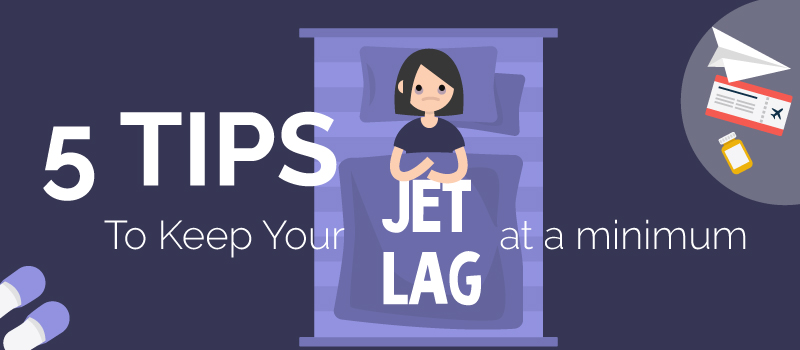Traveling to a faraway land in Europe or the Americas is something many in Singapore dream about.
But when you actually take the plunge and board that flight to the other side of the globe, getting hit by jetlag can ruin your travel plans for days.
Upon your return to Singapore, you might once again suffer from the debilitating effects of jetlag—except this time, you’re expected to show up for work the next day!
Here are some tips on how to reduce jetlag when you travel.
Start shifting your bedtime forward or backward a few days before you leave Singapore
Start to adjust your sleep schedule a few days before you leave. If you’re traveling to an area that is ahead of Singapore in terms of timezone (eg. Australia), you will need to adjust to going to bed earlier than you’re used to. A few days in advance, start going to bed an hour or two earlier so the disruption to your cycle is minimal.
On the other hand, if you’re traveling to, say, Europe, which is hours behind Singapore, start staying up later a few days before your departure date if you can afford to wake up later in the morning.
Book a flight which arrives in the day
Book a flight that will arrive at your destination in the daytime rather than at night or in the wee hours of the morning. These flights are not always the cheapest but can be worth it if they’ll save from days of fatigue.
It is easier to try to stay awake for a day and then go to bed at a decent hour at night, rather than to force yourself to fall asleep immediately once you’ve landed.
Make sure you are well-rested before your departure
It is common to stay up late the night before a big trip due to last minute packing or trying to finish work before going on leave. This is a mistake, as there is no guarantee you’ll be able to sleep on the plane even if you’re tired. Being exhausted can make jet lag all the more arduous.
So make sure you sleep well in the lead-up to your trip. Even if you suffer from jet lag for a day or two, your body will at least be better able to cope with the fatigue and the demands of travel.
Avoid caffeine and alcohol
As tempted as you might be to grab a coffee at the airport, avoid caffeine the day you have to catch a flight as it can make it more difficult for you to fall asleep. The same goes for tea, Coke, chocolate and energy drinks like Red Bull. Alcohol can also disrupt sleep and should be avoided.
During the flight, it’s a good idea to reject the flight attendants’ offer of coffee or tea no matter how tired you are. And as tempting as it might be to load up on free alcoholic drinks on the plane, resist the urge and hydrate with water instead.
Wear comfortable clothes on the plane
It’s not always easy to sleep in economy class, but you want to give yourself the best chances of success, so wear comfortable and loose fitting clothes. Make sure you bring along a coat or shawl in case temperatures get chilly, and pack a pair of comfy socks into your hand luggage if you’re wearing shoes that don’t require them.
Other items that can help you fall asleep more easily on the plane include neck pillows, ear plugs or sleep masks. If stiff legs are preventing you from falling asleep, take a walk down the aisle and stretch your limbs in the space beside the toilets.
Buy Travel Insurance
Before you catch that flight, make sure you’re protected with travel insurance from HL Assurance. Frequent flyers can take advantage of annual travel insurance to stay protected all year round.
By Joanne Poh
Disclaimer: All info contained herein is intended for your general information only and is not a substitute for insurance advice. If you have a specific question, please consult our insurance experts at 6702 0202.







